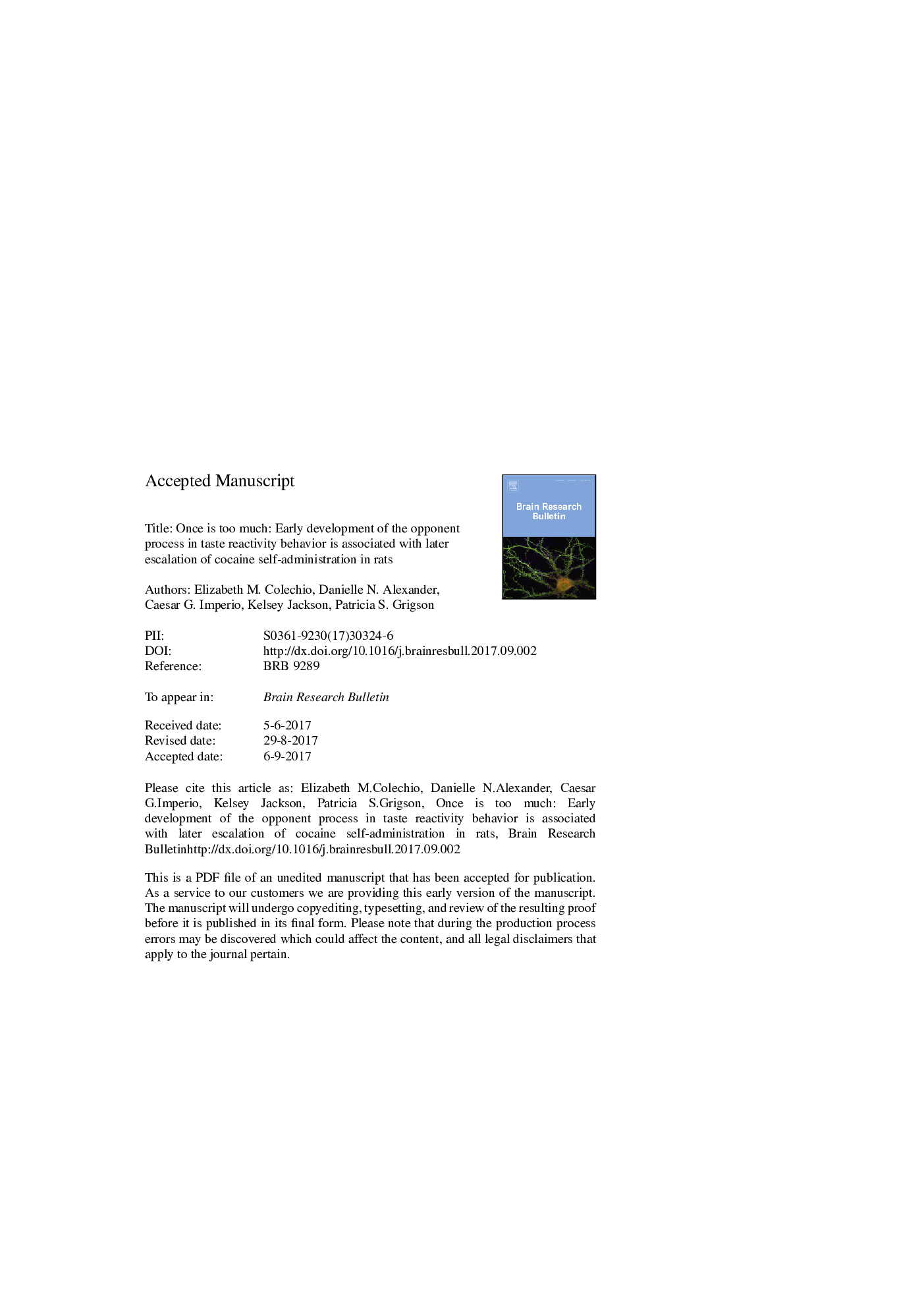| کد مقاله | کد نشریه | سال انتشار | مقاله انگلیسی | نسخه تمام متن |
|---|---|---|---|---|
| 8838964 | 1613219 | 2018 | 33 صفحه PDF | دانلود رایگان |
عنوان انگلیسی مقاله ISI
Once is too much: Early development of the opponent process in taste reactivity behavior is associated with later escalation of cocaine self-administration in rats
ترجمه فارسی عنوان
یک بار بیش از حد است: توسعه زودهنگام پروتئین حریف در رفتار مکمل واکنش پذیری با افزایش بعد از خودکامگی کوکائین در موش صحرایی
دانلود مقاله + سفارش ترجمه
دانلود مقاله ISI انگلیسی
رایگان برای ایرانیان
کلمات کلیدی
موضوعات مرتبط
علوم زیستی و بیوفناوری
علم عصب شناسی
علوم اعصاب سلولی و مولکولی
چکیده انگلیسی
Evidence suggests that the addiction process may begin immediately in some vulnerable subjects. Specifically, some rats have been shown to exhibit aversive taste reactivity (gapes) following the intraoral delivery of a cocaine-predictive taste cue after as few as 1-2 taste-drug pairings. After only 3-4 trials, the number of gapes becomes a reliable predictor of later cocaine self-administration. Given that escalation of drug-taking behavior over time is recognized as a key feature of substance use disorder (SUD) and addiction, the present study examined the relationship between early aversion to the cocaine-predictive flavor cue and later escalation of cocaine self-administration in an extended-access paradigm. The data show that rats who exhibit the greatest conditioned aversion early in training to the intraorally delivered cocaine-paired cue exhibit the greatest escalation of cocaine self-administration over 15 extended-access trials. This finding suggests that early onset of the conditioned opponent process (i.e., the near immediate shift from ingestion to rejection of the drug-paired cue) is a reliable predictor of future vulnerability and resilience to cocaine addiction-like behavior. Future studies must determine the underlying neural mechanisms associated with this early transition and, hence, with early vulnerability to the later development of SUD and addiction. In so doing, we shall be in position to discover novel diagnostics and novel avenues of prevention and treatment.
ناشر
Database: Elsevier - ScienceDirect (ساینس دایرکت)
Journal: Brain Research Bulletin - Volume 138, April 2018, Pages 88-95
Journal: Brain Research Bulletin - Volume 138, April 2018, Pages 88-95
نویسندگان
Elizabeth M. Colechio, Danielle N. Alexander, Caesar G. Imperio, Kelsey Jackson, Patricia S. Grigson,
